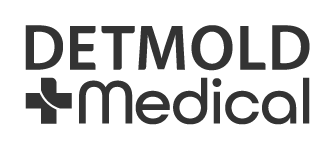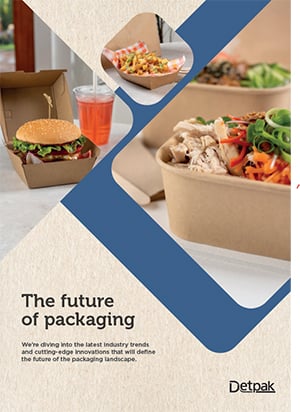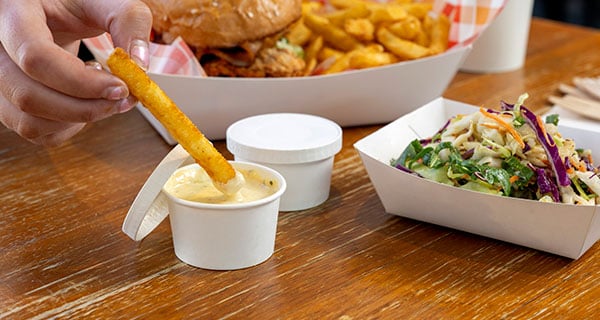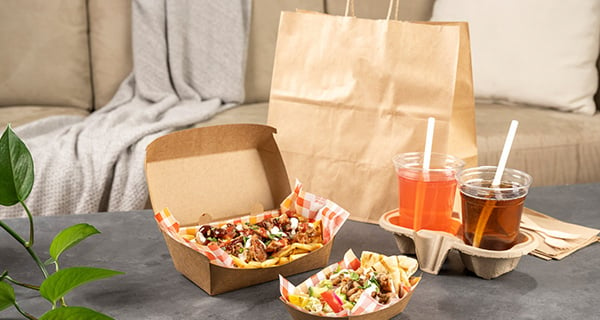WHY IS SUGARCANE THE FUTURE OF FOOD PACKAGING?
In a world grappling with the environmental consequences of excessive waste, finding sustainable alternatives to traditional plastic packaging without compromising functionality has become crucial. Enter sugarcane (bagasse) food packaging – a solution that’s gaining traction among sustainable-conscious individuals and businesses.
So, you’re seeing the terms sugarcane or bagasse, together with new sugarcane packaging options appearing with claims of sustainability. But what is it and why is this humble agricultural byproduct revolutionizing alternative packaging?
Sugarcane (bagasse) is a byproduct of making sugar. Sugarcane crops are fast growing and can be considered a highly renewable resource. When the stalks are harvested and pressed, the remaining fibrous pulp is made into a paper-like substance called bagasse, which is then formed into a variety of products from small portion cups through to large trays.
WHAT MAKES IT A GREAT ALTERNATIVE TO OTHER MATERIALS?
Sugarcane bagasse is becoming a popular sustainable packaging material due to its renewable nature, this reclaimed resource is a strong alternative to traditional plastics or polystyrene.
It offers environmental benefits such as compostability.
Industries across different sectors are embracing sugarcane packaging for its versatility and sustainability advantages.
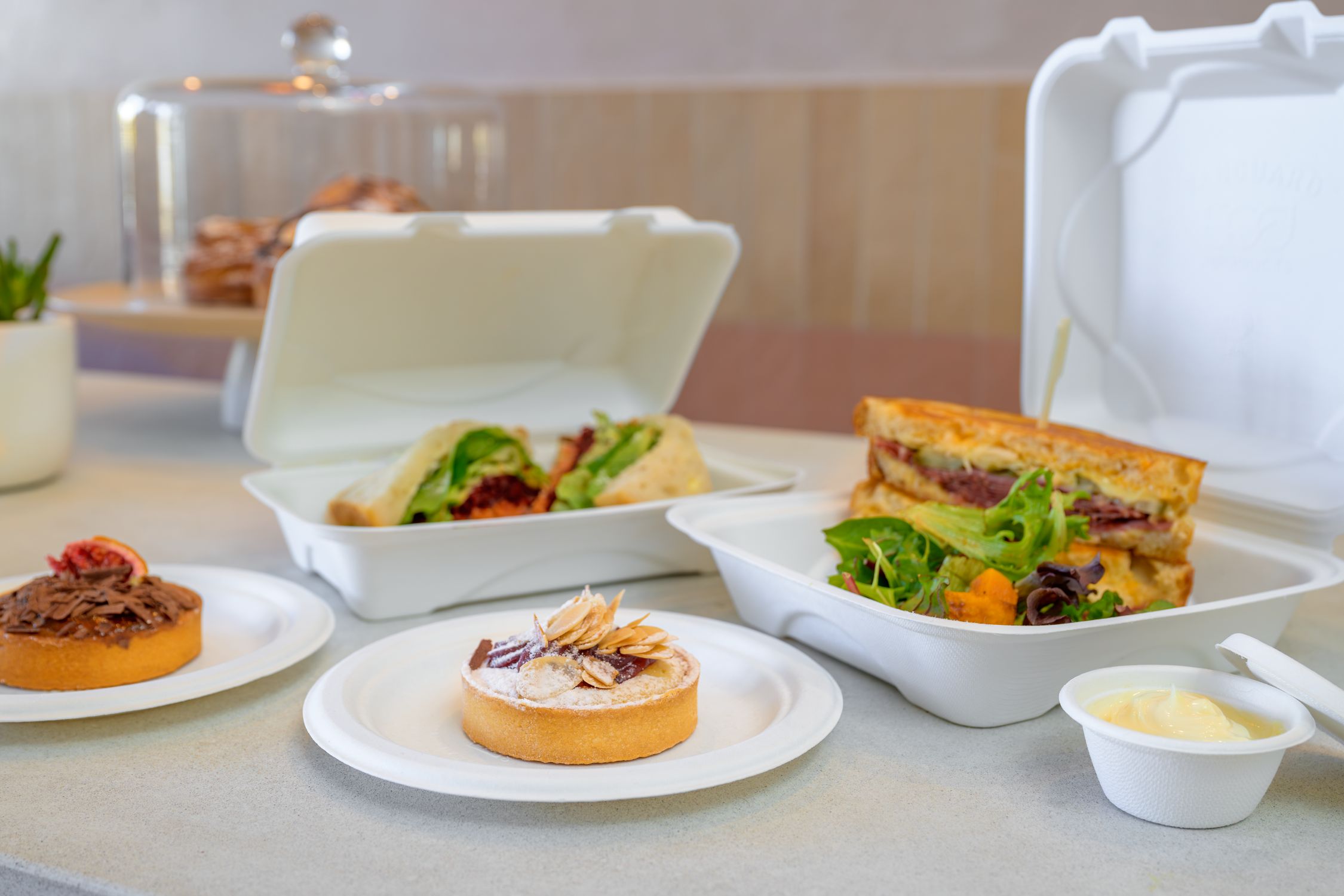
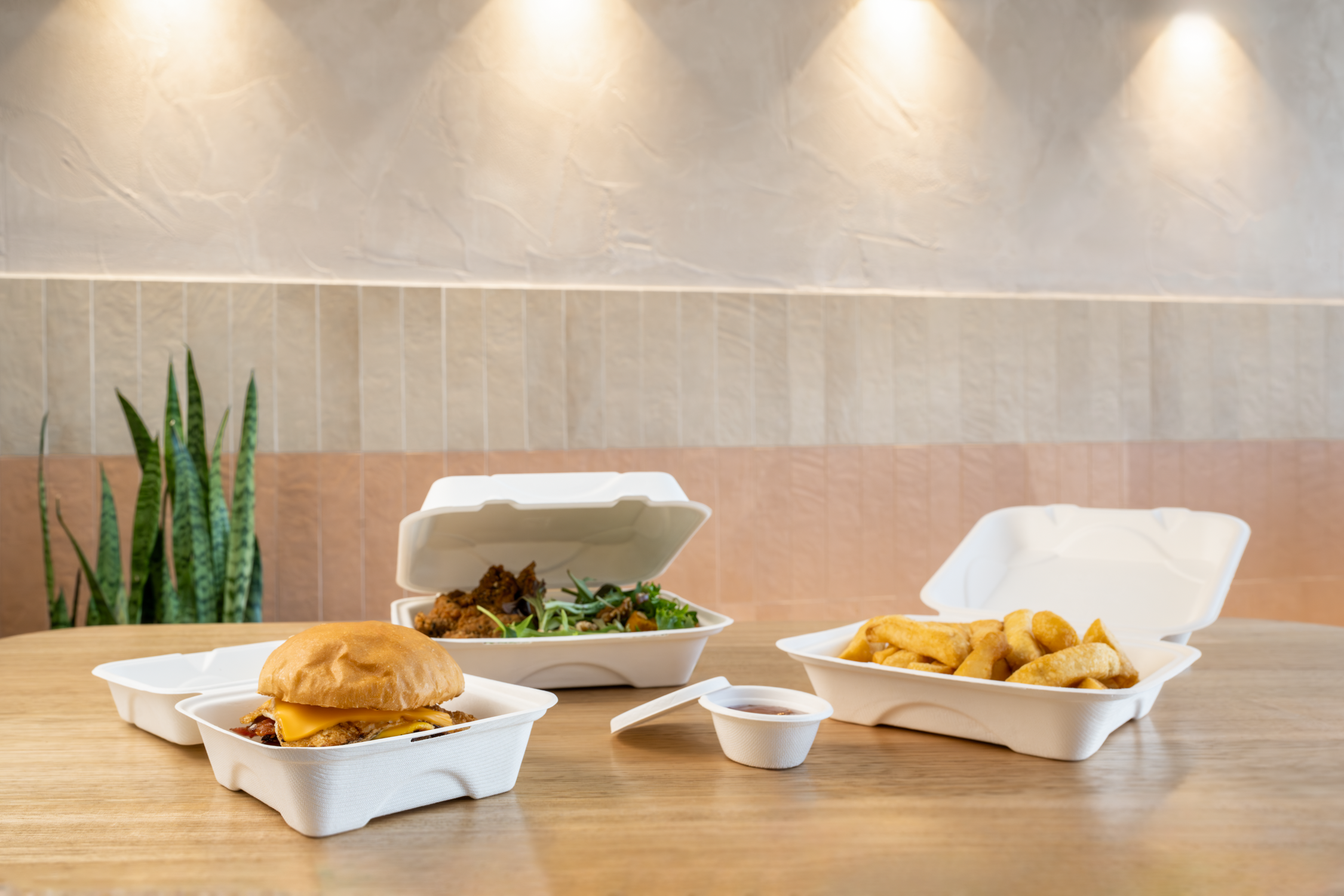
ADVANTAGES OF SUGARCANE PACKAGING FOR FOOD APPLICATIONS
Grease and Water Resistance
The fibres in sugarcane bagasse make it ideal for greasy take-away foods without the need for added PFAS, making it suitable for a range food packaging applications. This versatile material provides a practical solution for businesses looking to reduce waste and improve their environmental impact without compromising on functionality.
Durable and Lightweight
Besides being durable, sugarcane bagasse packaging is also lightweight. Its robust construction, made from resilient plant fibres, allows it to withstand the rigours of food packaging.
Compostable
As sugarcane packaging is composed of bagasse, it breaks down in soil and can be composted in a home or commercial composting facility.
HOW DOES IT MEASURE UP TO TRADITIONAL FOOD PACKAGING?
One sugarcane product could cater to multiple items on your menu allowing you to cut down on storage and cost by having one versatile piece of packaging. Let’s take a look at the E sugarcane noodle bowl* - Not just for noodles! This bowl is perfect for all your hot meals, side dishes, entrées, salads, desserts and more. Think about how you could be cutting down your collection of food delivery packaging and switching to something more sustainable and versatile. There are also several lids that fit these bowls, including options for food visibility that can be found on the Detpak website.
We have made our sugarcane products, like sugarcane plates and sugarcane containers, easy to find on our online store by using the search button at the top of our website.
With the urgent need for alternative sustainable packaging, sugarcane bagasse offers an exciting opportunity to reshape our packaging habits.
